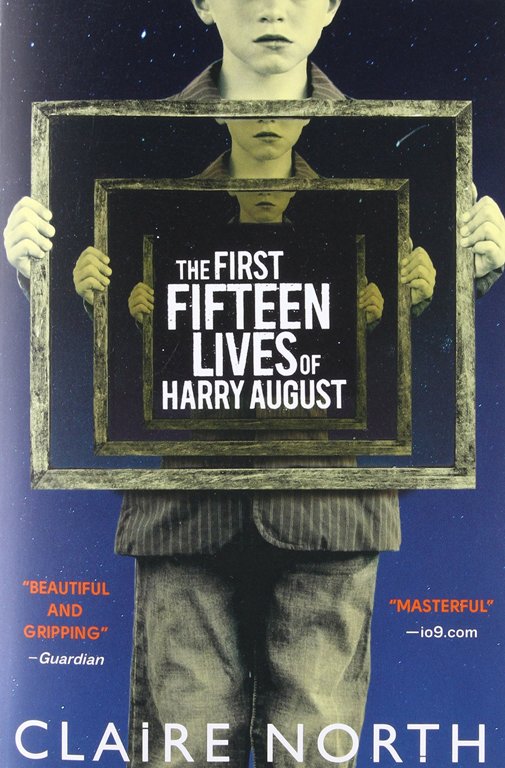Fantasy has a reputation for taking itself pretty seriously. Outside of some outliers like Terry Pratchet’s Discworld books, the prevailing image of fantasy is that it’s about big deal themes of good against evil, fulfilling destinies, and such like that. The Lord of the Rings is not a “day in the life” story with no big stakes, after all. Indeed, in a lot of ways fantasy can seem – to use an epithet thrown at progressive rock all the time – “pretentious.” But for all that, when it comes to dealing with the big questions, the ones that probe the nature of reality and humanity, do people take science fiction more seriously than fantasy? Even to the point of letting that reflect how they categorize a story?
This occurred to me after I’d finished up The First Fifteen Lives of Harry August, by Claire North.

The setup is this – the title character is one of a few select people in the world who live their lives over and over again. When they die, they basically go back to the beginning and are reborn, but with the collected memories of their prior lives still intact. Thus these are some seriously “ahead of their time” children roaming around, as you might guess. The story follows Harry as he lives a bunch of his lives and tries to stop another of his kind that is seeking a revelation will destroy the world. It’s pretty good, and has some really excellent bits. I recommend it.
When I finished the book I do what I usually do and seek out reviews to see what others thought about it. To my surprise, I saw a lot of people file The First Fifteen Lives of Harry August under “science fiction,” which made little sense to me. Sure, there’s some discussion of quantum mechanics and parallel worlds (at i09, Charlie Jane Anders lists all this as reasons why “it’s a real science fiction book,” so what do I know?), but what makes the story go is the completely fantastic bit where these people live their lives over and over again. It’s never explained, much less with some kind of semi-plausible scientific reason. For all we know a genie thousands of years ago granted somebody’s wish and it got out of hand.
The mechanics don’t matter much because North uses them to deal with issues of free will, destiny, and the price of the pursuit of ultimate knowledge. These are the kinds of big issues that science fiction sometimes tackles, but that doesn’t mean that every story that does that is science fiction. Could it just be that people expect sci-fi to be more thoughtful about this stuff than fantasy?
Regular readers know one of my pet peeves is when people who write “Literature,” rather than just tell stories, write something that’s unambiguously fantasy or sci-fi but refuse to label it as such because of genre snobbery. This feels kind of the same way. Sure, fantasy is fine for satisfying tales of good vanquishing evil or ass-kicking vampire slayers, but if you want to ponder the big questions, well, it’s not for that. But why not?
Any story can plumb the depths of the big questions that have plagued humanity since we started walking upright. Genre doesn’t limit the stories you can tell, only change the way that they’re told. Embrace the idea that deep thoughts can come from anywhere in the library.

Pingback: Serious Fantasy Revisited | JD Byrne